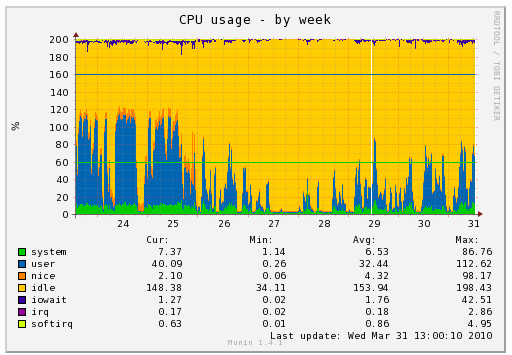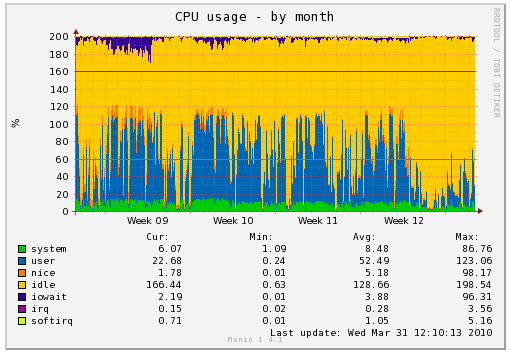Efficient Hash Lookups: Adventures with Benchmarks!
Efficient data retrieval is crucial for high performance applications. Whether you're configuring a complex system or handling large datasets, the speed of hash lookups can significantly impact performance. In this post, we'll explore various methods to optimize hash lookups and benchmark their performance.
You can find my benchmarking code available here.
The Challenge
Let's say that you have a hash (aka dictionary aka map aka associative array; something with key/value pairs) representing configuration for your system.
At runtime, let's assume that your application only needs access to a small number of these configuration items to handle a given request.
Let's also say that this hash can get pretty large; some users have very complex configurations.
{ "setting_1": "value 1", "setting_2": "value 2", /* ... */ "setting_10000": "value 10000", }
A common way of storing this configuration is in a
JSON file. JSON is really simple to use for this
type of problem. Just use something like JSON.parse to parse your file, and do a lookup
for whatever key you want:
config_data = File.read("config.json") config = JSON.parse(config_data) puts config["setting_500"] # => "value 500"
Awesome, what's the problem?
Assuming that we just want to fetch a small number of items from this configuration, there are a few problems here:
- We have to load the entire file into memory
- We then have to parse the entire file to get our hash object. This involves inserting every item in configuration into a new hash object, which is an O(n) operation.
If our configuration is quite large, then the parsing & hash construction time will be far greater than our lookup time.
$ ruby benchmark.rb -f json -s hash Calculating ------------------------------------- load 829.185 (±30.0%) i/s (1.21 ms/i) parse 24.779 (± 8.1%) i/s (40.36 ms/i) get_key 4.242M (± 3.7%) i/s (235.72 ns/i) load/parse/get_key 22.561 (± 8.9%) i/s (44.32 ms/i)
(I've removed some superfluous information from the output snippets here in the interests of clarity; the number I'm paying attention to is the time per iteration represented in the last column.)
Lookups into the hash, once created, are very fast: about 200ns per lookup.
However, for 100,000 entries, just parsing the data and creating the hash takes about 40ms on my system.
In fact, the hash construction time is the fundamental issue to overcome when trying to speed up our overall time here. Simply creating a hash from the data takes about 20ms on my system:
$ ruby benchmark-to_h.rb < output/array.json Calculating ------------------------------------- to_h 37.764 (±18.5%) i/s (26.48 ms/i)
It makes sense when you think about it. Before we can get our hash object containing our configuration, we need to iterate through each key/value pair and insert it into the hash object. Only then can we do a lookup for the key we're interested in.
How can we make this better?
A bunch of different ideas come to mind:
We can try different ways to encode the data. For example: using MessagePack, protobufs, or capnproto. Each of these use more efficient ways to serialize/de-serialize the data, speeding up the parsing time.
Another idea is to encode our data as a sorted list of key/value pairs instead of as a hash, and use a binary search to lookup the key that we want.
Or, we can try and use perfect hashes; here we would encode our data as a list of key/value pairs as above, but augmented with additional information that makes it possible to treat the array as a pre-computed hash table.
Other ideas: sqlite, dbm/lmdb. These benefit from encoding the index within the file itself, so we don't need to reconstruct a hash table/index again when loading the data. Storing more structured data in these is more challenging though, and lookups in these types of data stores are typically O(log N) instead of O(1)
MessagePack
MessagePack is an easy thing to try first since it's almost a drop-in replacement for JSON in our use case.
$ ruby benchmark.rb -f msgpack -s hash Calculating ------------------------------------- load 679.466 (± 5.3%) i/s (1.47 ms/i) parse 27.958 (± 3.6%) i/s (35.77 ms/i) get_key 4.692M (± 3.4%) i/s (213.13 ns/i) load/parse/get_key 27.031 (± 3.7%) i/s (36.99 ms/i)
Well, we've improved the parsing time by about about 5ms, which is a nice improvement, but still pretty slow overall. Again, we have that large hash construction time to overcome, which MessagePack doesn't help us with.
Protobufs
To experiment with Protobufs, I've created a simple definition using the native map type:
syntax = "proto3"; message PBHash { map<string, string> data = 1; }
The results here are surprising:
$ ruby benchmark.rb -f pb -s hash Calculating ------------------------------------- load 1.311k (±35.9%) i/s (762.93 μs/i) parse 21.496 (± 4.7%) i/s (46.52 ms/i) # !! get_key 3.098M (± 3.2%) i/s (322.75 ns/i) load/parse/get_key 20.707 (± 4.8%) i/s (48.29 ms/i)
It looks like parsing protobuf maps are significantly slower than parsing the equivalent JSON or msgpack objects.
Encode as an array
Let's see what happens if we encode our data as an array.
This may improve parsing time, since we don't need to construct a large hash object in memory. The trade-off is that lookup times become O(log n) instead of O(1), assuming we can sort our input. As a first approximation, we can compare times to load & parse the array.
Using JSON I see marginal improvement to load & parse the data (~30ms), but using Protobufs we can load & parse the data in about 6ms. Unfortunately I couldn't get good measurements for the full load/parse/get_key with protobufs; it seems like doing a binary search for elements in the protobuf arrays is relatively slow in Ruby. Fetching individual items is fast.
ruby -Iproto benchmark.rb -f pb -s array Calculating ------------------------------------- load 1.641k (±10.7%) i/s (609.32 μs/i) parse 163.886 (± 3.1%) i/s (6.10 ms/i) get_key 27.325 (±11.0%) i/s (36.60 ms/i) load/parse/get_key 3.000 (±33.3%) i/s (333.32 ms/i) # ???
Perfect hashes
Maybe we can get the best of both worlds by using a perfect hash to order our data in a particular way to make it cheap to find?
There are several ways of constructing a perfect hash; the CHD algorithm is fairly easy to implement (without the "compress" part of compress-hash-displace) , and can compute a minimal perfect hash function in O(n) time.
The way it works is that we compute a secondary array of seeds that are used to prevent collisions between keys in the data set. To find the index of an element by its key, we compute:
# Find index for `key` seed = seeds[hashfunc(seed: 0, data: key) % seeds.size] index = hashfunc(seed: seed, data: key) % data.size] value = data[index]
The results of using CHD with Protobufs are very good (using cityhash as the hashing function):
$ ruby benchmark.rb -f pb -s chd Calculating ------------------------------------- load 1.920k (± 7.0%) i/s (520.85 μs/i) parse 173.076 (± 4.0%) i/s (5.78 ms/i) get_key 491.510k (± 1.9%) i/s (2.03 μs/i) load/parse/get_key 154.828 (± 1.9%) i/s (6.46 ms/i)
Summary
Wow, that was a lot! What did we learn?
Benchmarks are hard! I wouldn't take any results here as absolute proof that X is better or worse than Y. Your data and use cases are most likely very different.
Using perfect hashes or binary search in an array of key/value pairs look like they're much faster in general than simple lookups into a hash object. The time to construct the hash object plays such a large part in the overall timings.
I'm surprised at the performance of protobufs in generally. They're much slower than I expected, in everything except the perfect hash (CHD) case. It makes me wonder if something is wrong with my implementation, or Ruby's protobuf gem.
$ ruby benchmark-final.rb Comparison: load/parse/get_key pb chd: 124.3 i/s load/parse/get_key msgpack array: 50.2 i/s - 2.48x slower load/parse/get_key msgpack chd: 41.1 i/s - 3.02x slower load/parse/get_key json array: 37.3 i/s - 3.33x slower load/parse/get_key json chd: 27.9 i/s - 4.46x slower load/parse/get_key msgpack hash: 23.8 i/s - 5.22x slower load/parse/get_key json hash: 20.7 i/s - 6.00x slower load/parse/get_key pb hash: 19.4 i/s - 6.40x slower load/parse/get_key pb array: 3.1 i/s - 40.07x slower
To follow up, I'd like to explore using capnproto, and running similar benchmarks in other languages to see if the protobuf performance improves.




 we now do this:
we now do this:  (not exactly to scale, but you get the idea)
(not exactly to scale, but you get the idea)
 (the break in the graph is the time when mozilla-central was closed due to the PGO link failure
(the break in the graph is the time when mozilla-central was closed due to the PGO link failure  Simply selecting the right machine for the job reduced our end-to-end time from 3h12 to 2h13, again almost an hour improvement, or 30% better.
Simply selecting the right machine for the job reduced our end-to-end time from 3h12 to 2h13, again almost an hour improvement, or 30% better.